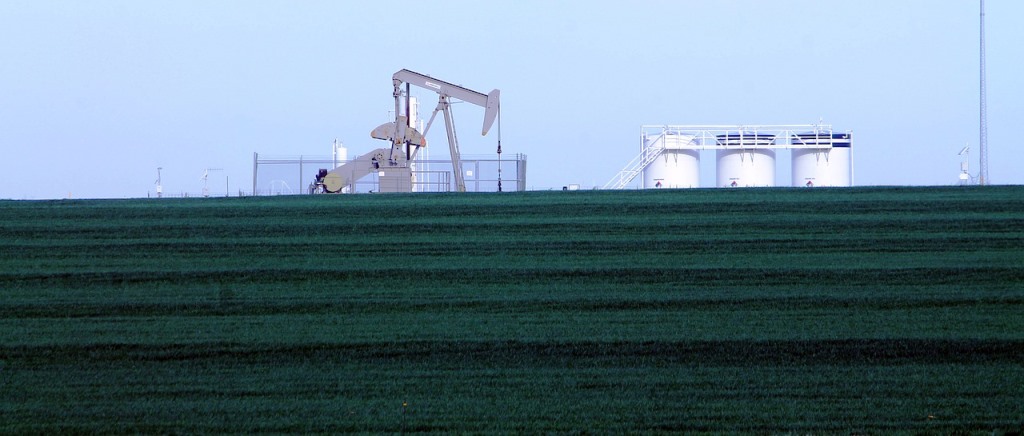One of the many downsides of the commercial election system in the U.S.—whereby people are elected based on the amount of money they can raise—is that fossil fuel companies have long been allowed to remove and profit from publicly-owned oil and gas, and then leave the cleanup to be funded by taxpayers.
This “corporate welfare” is possible because campaign donations (called “bribes” in most other countries) go to candidates of both parties: Republicans are paid to overtly advance the agenda of the fossil fuel companies, while Democrats are paid to pretend to protect the public interest.
This has been going on for so long that millions of Americans now live within a mile of an orphaned oil and gas well. There are over 10,000 high-priority well sites across the country ready for immediate remediation efforts, with many more lined up for future action.
Orphaned oil and gas wells are polluting backyards, recreation areas, and community spaces across the country. Methane leaking from many of these unplugged wells is a serious safety hazard and is a significant cause of climate change, being over 25 times as potent as carbon dioxide at trapping heat in the atmosphere.
Finally, this unhealthy plague can no longer be ignored, and action is being taken, in a good news/bad news manner.
On August 25, 2022, the U.S. Department of the Interior announced it has awarded an initial $560 million from the Bipartisan Infrastructure Law to 24 states to begin work to plug, cap and reclaim orphaned oil and gas wells.
The historic investments to clean up these hazardous sites will create good-paying union jobs, catalyze economic revitalization, and reduce harmful methane leaks. So, the good news is that the cleanup is beginning. The bad news is that taxpayers—rather than the polluters—are footing the bill.
The announcement comes as Interior Secretary Deb Haaland, Director of the National Economic Council Brian Deese, Deputy White House National Climate Advisor Ali Zaidi, Deputy Secretary of Energy David Turk, and members of the Interagency Working Group on Coal and Power Plant Communities and Economic Revitalization were in New Mexico highlighting how historic investments from the Bipartisan Infrastructure Law and the Inflation Reduction Act will address legacy pollution and help transition energy communities through good paying jobs and economic revitalization.
“President Biden’s Bipartisan Infrastructure Law is enabling us to confront long-standing environmental injustices by making a historic investment to plug orphaned wells throughout the country,” said Haaland.
“At the Department of the Interior, we are working on multiple fronts to clean up these sites as quickly as we can by investing in efforts on federal lands and partnering with states and Tribes to leave no community behind. Today’s announcement is exciting progress toward what we will accomplish together through this historic Law,” she added.
Plugging orphaned wells will help advance the goals of the U.S. Methane Emissions Reduction Action Plan, as well as the Interagency Working Group on Coal and Power Plant Communities and Economic Revitalization, which focuses on spurring economic revitalization in hard-hit energy communities.
The Bipartisan Infrastructure Law delivers the largest investment in tackling legacy pollution in American history, including through a $4.7 billion investment to plug orphaned wells. These legacy pollution sites are environmental hazards and jeopardize public health and safety by contaminating groundwater, emitting noxious gases and methane, littering the landscape with rusted and dangerous equipment, and harming wildlife.
Of initial state plans:
- 15 states will utilize Initial Grant funding to set up methane measuring capacity while 6 states — including California, Mississippi and West Virginia — have committed to measuring methane before and immediately after remediation;
- 12 states — including Kansas, New Mexico and Ohio — have prioritized capping wells in disadvantaged communities; and
- Several states — including Arizona, Louisiana and Montana — will prioritize job creation and preference to small businesses through their contracting process.
As of 2021, states have identified more than 129,000 orphaned wells on state and private land, though this number will grow as Bipartisan Infrastructure Law funding becomes available for further records research, more field equipment, improved well location techniques, and increased site inspections and data collection nationwide.
This new investment is part of an overall $1.15 billion in Phase One funding announced in January by the Department for states to plug and remediate orphaned wells. States will receive additional formula funding dollars in the coming months. In addition, an initial $33 million was recently allocated to plug 277 wells on federal public lands. The Tribal orphaned well grant program is being informed by ongoing Tribal consultations and listening sessions.
Of states eligible for funding, 22 have been allocated $25 million each in Initial State Grants. Arkansas and Mississippi will receive $5 million each to support methane measurement and begin plugging wells.
Photo of functioning oil well in Oklahoma by 15299 from Pixabay.

